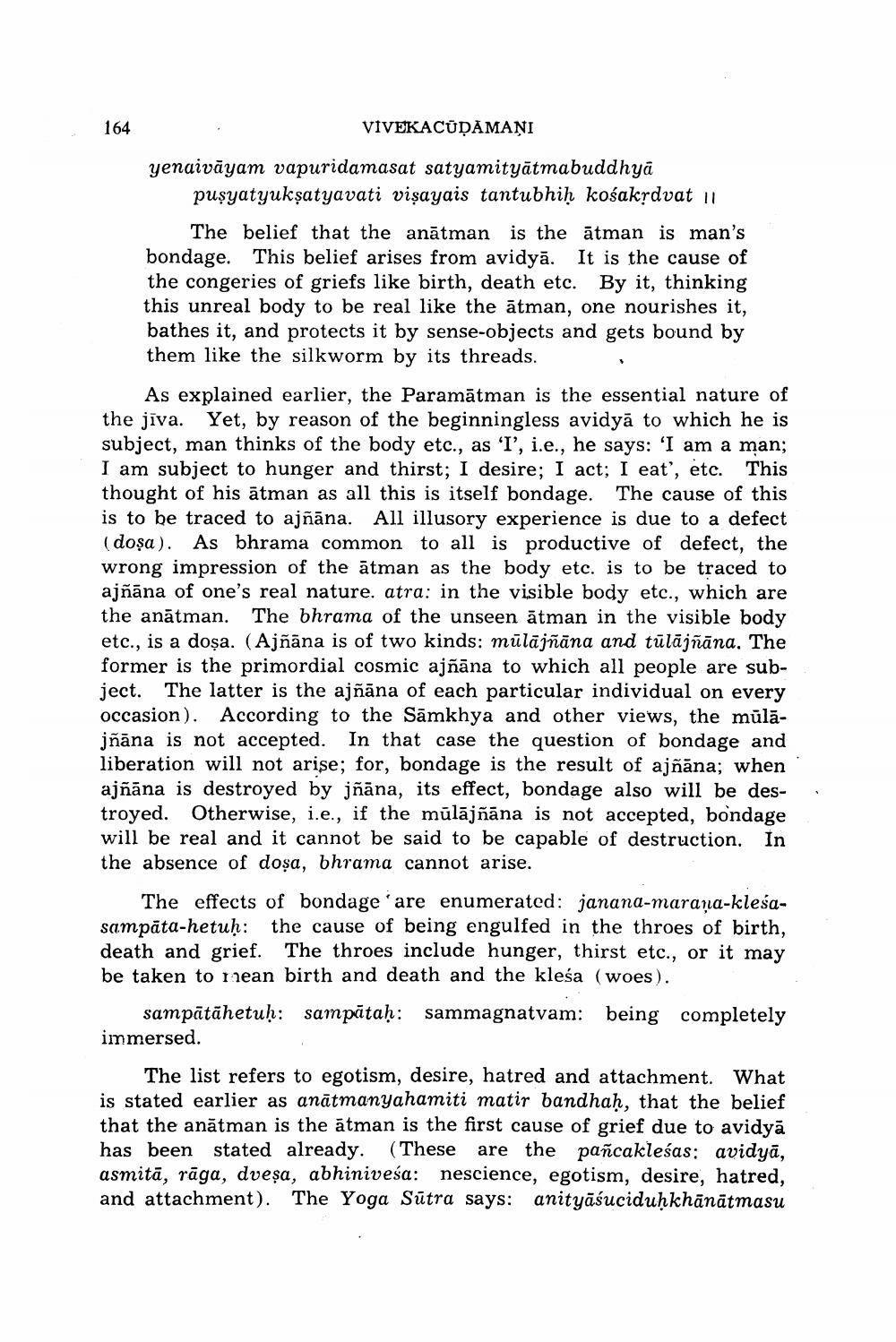________________
164
VIVEKACŪDAMAŅI
yenaivāyam vapuridamasat satyamityātmabuddhya
pușyatyuksatyavati vişayais tantubhiḥ kośakşdvat 11
The belief that the anātman is the ātman is man's bondage. This belief arises from avidyā. It is the cause of the congeries of griefs like birth, death etc. By it, thinking this unreal body to be real like the ātman, one nourishes it, bathes it, and protects it by sense-objects and gets bound by them like the silkworm by its threads.
As explained earlier, the Paramātman is the essential nature of the jiva. Yet, by reason of the beginningless avidyā to which he is subject, man thinks of the body etc., as 'I', i.e., he says: 'I am a man; I am subject to hunger and thirst; I desire; I act; I eat', etc. This thought of his ātman as all this is itself bondage. The cause of this is to be traced to ajñāna. All illusory experience is due to a defect (doşa). As bhrama common to all is productive of defect, the wrong impression of the ātman as the body etc. is to be traced to ajñāna of one's real nature. atra: in the visible body etc., which are the anātman. The bhrama of the unseen ātman in the visible body etc., is a dosa. (Ajñāna is of two kinds: mūlājñāna and tūlājñāna. The former is the primordial cosmic ajñāna to which all people are subject. The latter is the ajñāna of each particular individual on every occasion). According to the Sāmkhya and other views, the mūlājñāna is not accepted. In that case the question of bondage and liberation will not arise; for, bondage is the result of ajñāna; when ajñāna is destroyed by jñāna, its effect, bondage also will be destroyed. Otherwise, i.e., if the mūlājñāna is not accepted, bondage will be real and it cannot be said to be capable of destruction. In the absence of dosa, bhrama cannot arise.
The effects of bondage are enumerated: janana-marana-klesasampāta-hetuḥ: the cause of being engulfed in the throes of birth, death and grief. The throes include hunger, thirst etc., or it may be taken to rean birth and death and the klesa (woes).
sampātāhetuh: sampātaḥ: sammagnatvam: being completely immersed.
The list refers to egotism, desire, hatred and attachment. What is stated earlier as anātmanyahamiti matir bandhah, that the belief that the anātman is the ātman is the first cause of grief due to avidyā has been stated already. (These are the pañcakleśas: avidyā, asmitā, rāga, dveșa, abhiniveśa: nescience, egotism, desire, hatred, and attachment). The Yoga Sūtra says: anityāśuciduhkhānātmasu




